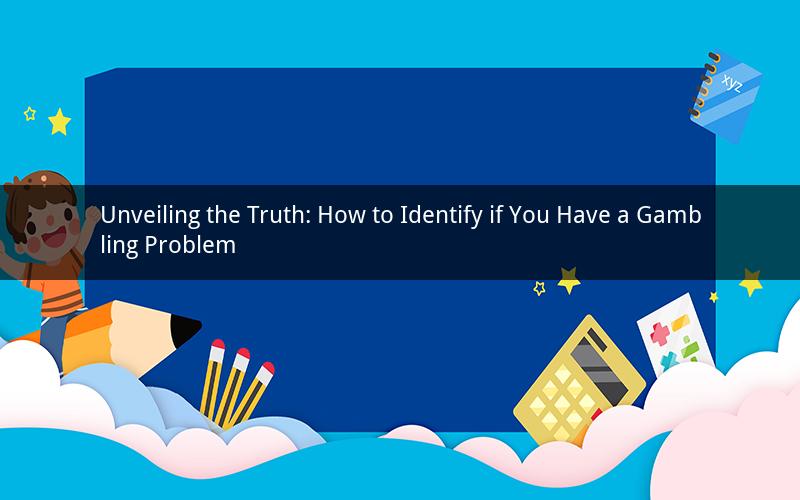
Introduction:
Gambling has long been a controversial topic, captivating the attention of millions around the world. While some individuals enjoy the thrill and excitement of gambling, others may find themselves struggling with an uncontrollable urge to gamble. Identifying if you have a gambling problem is crucial in order to seek help and regain control over your life. In this article, we will explore various signs and symptoms that indicate a potential gambling problem, along with strategies to determine if you are at risk.
1. Recognizing the Signs:
1.1 Financial Woes:
One of the most common signs of a gambling problem is experiencing financial difficulties. If you find yourself frequently in debt or struggling to meet your financial obligations due to gambling, it is a strong indication that you may have a problem.
1.2 Time Commitment:
Gambling can consume a significant amount of time. If you find yourself neglecting other important aspects of your life, such as work, family, and personal responsibilities, it may be a red flag.
1.3 Emotional Distress:
Gambling can lead to emotional turmoil. If you experience feelings of anxiety, depression, or guilt as a result of gambling, it is essential to address these emotions and seek professional help.
1.4 Secretive Behavior:
Individuals with a gambling problem often engage in secretive behavior. If you find yourself hiding your gambling habits from loved ones or lying about your gambling activities, it may indicate a problem.
1.5 Physical Symptoms:
Gambling can also have physical consequences. If you notice changes in your physical health, such as insomnia, loss of appetite, or other stress-related symptoms, it may be a sign of a gambling problem.
2. Strategies to Determine Your Risk:
2.1 Self-Assessment:
Take a moment to reflect on your gambling habits. Ask yourself questions like: How often do I gamble? How much money do I spend on gambling? Do I experience any negative consequences as a result of gambling? Answering these questions can provide valuable insights into your gambling behavior.
2.2 Seek Professional Help:
If you suspect that you may have a gambling problem, it is crucial to seek professional help. A therapist or counselor can provide personalized guidance and support tailored to your specific needs.
2.3 Support Groups:
Joining a support group can offer a sense of community and understanding. Organizations such as Gamblers Anonymous provide a safe space for individuals to share their experiences and receive support from others who have faced similar challenges.
2.4 Educate Yourself:
Understanding the consequences of gambling can help you recognize the signs of a problem. Educate yourself about the potential risks and negative impacts that gambling can have on your life.
3. Questions and Answers:
Q1: What is considered a gambling problem?
A1: A gambling problem is characterized by the inability to control gambling behavior, leading to negative consequences in various aspects of life, including financial, emotional, and physical well-being.
Q2: How can I tell if I am addicted to gambling?
A2: If you find yourself preoccupied with thoughts of gambling, feeling the need to increase the amount of money you bet, and experiencing withdrawal symptoms when unable to gamble, it may indicate an addiction.
Q3: Can gambling problems affect relationships?
A3: Yes, gambling problems can have a significant impact on relationships. It can lead to financial strain, emotional distress, and trust issues, which can strain or even break relationships.
Q4: Are there any effective treatments for gambling problems?
A4: Yes, there are various effective treatments for gambling problems. These include therapy, support groups, financial counseling, and medication for co-occurring disorders.
Q5: How can I prevent a gambling problem from worsening?
A5: To prevent a gambling problem from worsening, it is essential to seek help early, establish healthy boundaries around gambling, and surround yourself with supportive individuals who can help you stay accountable.
Conclusion:
Identifying if you have a gambling problem is the first step towards overcoming it. By recognizing the signs, seeking professional help, and taking proactive steps to address your gambling behavior, you can regain control over your life. Remember, it is never too late to seek help and make positive changes.